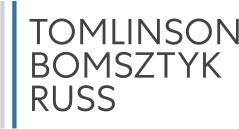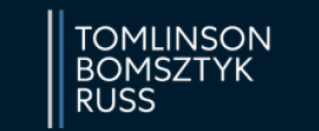Poaching customers and trade secrets is unfortunately too common in the United States. Unscrupulous competitors and employees use these illegal tactics to improve their bottom line and hurt their rivals. Fortunately, a business can take legal remedies to limit fraudulent activity.
Fraudulent competitive practices occur in many ways, including the following:
- A departure of an employee, who then calls their former client contacts
- An executive leaves for a competing company, taking valuable proprietary information
- An employee takes trade secrets to a new employer
Customer lists, business plans, product designs, proprietary software code, and financial data are examples of what can be taken illegally from one’s company and shared with another.
Protect Proprietary Assets and Information
Companies must be proactive in safeguarding trade secrets that are important to their success. Marketing tactics, lead lists, development designs, and more can be stolen, resulting in financial injury to the business.
The following strategies are just a few of the ways a business can protect its interests:
- Catalog Trade Secrets. Any data, client lists, trademarks, patents, and other similar information of value that provides the company with a competitive advantage.
- Physical and Digital Security. Trade secrets should be secured, as appropriate, in locked cabinets, password-protected networks, and watermarks and confidential stamps on physical and digital documents.
- Employee Training. All employees must be trained on confidentiality, how they are required to handle the company’s sensitive information and what is a trade secret.
- Confidentiality Agreements. All employees should sign confidentiality agreements, even if their work does not give them direct access to trade secrets. The employees must acknowledge that named assets are valuable, proprietary, and must never be disclosed to a competitor or third party.
- Non-Solicitation Agreements. Employees should sign a non-solicitation agreement, preventing them from contacting any company clients for a specific period after retirement, quitting, or dismissal. An additional clause can stipulate that the employee cannot communicate with the client during that timeframe, even if the client initiates contact.
Take Quick Action to Limit Customer & Trade Secret Theft
Whether the departing worker is a single case or part of a larger defection, a business must act immediately to prevent a theft of valuable proprietary assets.
If a business learns that one or more employees are leaving, the following should be done immediately:
- Gather computers and any other electronics used by the employees in question.
- Ensure all backups are not overwritten, possibly destroying needed evidence.
- Check for missing files and documents.
- Talk with trusted employees about the situation.
- Contact a business attorney.
Send Cease-and-Desist Letters
If you learn that a former employee is utilizing your customer data or trade secrets, your attorney can send a cease-and-desist letter. A cease-and-desist letter can demand that they stop their illegal actions immediately and threaten further legal action if they do not.
Cease-and-desist letters can be appropriate in the following situations:
- Breach of Contract
- Defamation
- False Light
- Nondisclosure Agreement Violations
- Intellectual Property Infringement
- Misappropriation of Trade Secrets
Civil Lawsuits Against Current or Former Employees
Internal company leads or client lists are protected by law under certain circumstances. To be considered a trade secret, the list cannot be ascertainable from public sources. If the stolen information caused injury to your business and there was a valid contractual relationship, a business can enforce their trade secret rights in court.
A court has the power to do the following:
- Grant an injunction ordering the individual to take or not take an action
- Order the employee to pay damages for the breach of contract or for intellectual property infringement
- Order the employee to compensate the company for any legal costs
A successful lawsuit must show that the employee knew of their duties to company privacy, intentionally breached agreements, and purposely acquired the information for improper use.
Laws Against Unfair Business Practices
Washington’s Unfair Business Practices Act can be found in Title 19 of the Revised Code of Washington. The state’s Uniform Trade Secrets Act is also located in Title 19.
The law defines a trade secret as follows:
- Trade secret means information, including a formula, pattern, compilation, program, device, method, technique, or process that:
- (a) Derives independent economic value, actual or potential, from not being generally known to, and not being readily ascertainable by proper means by, other persons who can obtain economic value from its disclosure or use; and
- (b) Is the subject of efforts that are reasonable under the circumstances to maintain its secrecy.
Non-Compete Agreements in Washington State
A law effective on Jan. 1, 2020 impacts existing and new non-compete agreements. The state has limited the enforceability of these clauses. If your business has not updated its non-compete agreements, the document may no longer be valid.
Non-compete agreements are only enforceable within these parameters:
- An employee earning more than $100,000 annually
- An independent contractor earning at least $250,000 annually from the employer
- The employer discloses all terms of the non-compete during or before making an offer or provides additional compensation for an already-employed individual
- The employer pays employees that are laid off and still subject to non-compete agreements
- The agreement cannot extend beyond 18 months
If requirements are not meant, the agreement is not enforceable. In addition, the employer can be ordered to pay the employee actual damages or a statutory penalty of $5,000.
Businesses Have Legal Rights to Fight Customer Theft
At Tomlinson Bomsztyk Russ, we have decades of experience in business and contract litigation in Washington and federal courts.
Understanding both sides in a legal action gives us a distinct advantage in helping our clients. We represent companies fighting to protect their trade secrets and receive damages for financial or reputation injury. We also defend individuals and companies that have been wrongly accused of misappropriating trade secrets.
Have you lost customers due to illegal business practices? Are you unsure if your current employment agreements are enforceable? Discuss your rights and options with one of our skilled lawyers. Reach out online or call (206) 203-8009 to get started.

